
Celebrating 7 years of The Narwhal — and gearing up for the next 7
Between a fresh take on engagement and our new life on video, our team is...
The RCMP has launched an investigation into the Ontario Greenbelt scandal, weeks after Premier Doug Ford announced he would reverse the controversial plan amid intense public backlash.
The provincial Progressive Conservative government opened 3,000 hectares, or 7,400 acres, of Greenbelt land for development late last year, reversing a promise Ford made while on the campaign trail in 2018. The move triggered concerns about the ecological importance of the land that was set to be built on, sparking fallout that has reverberated in the months since. In recent months, the scandal has escalated to a political crisis for the Ford government.
Renewed controversy began swirling after a bombshell Aug. 9 report from Ontario auditor general Bonnie Lysyk and a subsequent Aug. 30 report by integrity commissioner J. David Wake. The Lysyk report revealed Ryan Amato, chief of staff to Municipal Affairs and Housing Minister Steve Clark, gave “preferential treatment” to a group of developers, directing public servants to unlock their lands, which has increased their property values by over $8 billion. All but one of the 22 Greenbelt sites considered for removal were brought forward by Amato instead of the team of public servants tasked with that job, Lysyk’s report found. Wake’s report singled out Clark for breaching ethics rules and failing to adequately oversee his staffer.
Clark announced his resignation on Labour Day, less than a week after Wake’s report.
Amato resigned on Aug. 22, two weeks after Lysyk released her report. Then, the next day, there was a fresh flurry of police activity on the file: on Aug. 23, the RCMP said it had begun work on an “assessment” of the Greenbelt changes to “determine whether to launch an investigation,” laying the groundwork for the RCMP’s Oct. 10 announcement. Before that, Ontario Provincial Police had been considering the issue since January, but referred it to the RCMP to avoid any “potential perceived conflict of interest.”
As the provincial government has attempted to manage the fallout — and fight back — Ontarians have organized protests, too.
Here are the details of what’s happened since Lysyk released her Greenbelt report. The Narwhal will update this list as events unfold.
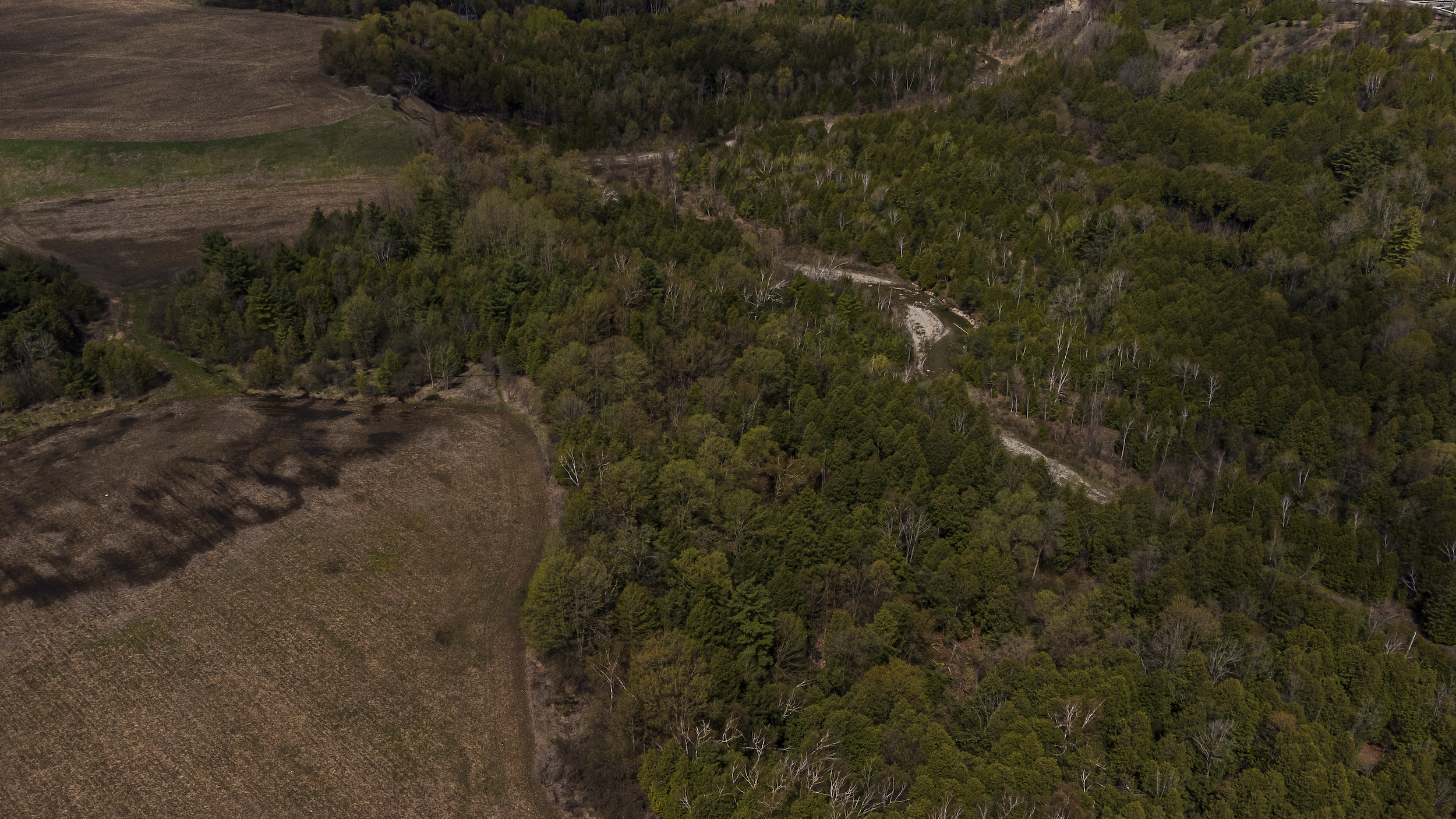
The RCMP’s sensitive and international investigations unit has launched an investigation into the “allegations associated to the decision from the province of Ontario to open parts of the Greenbelt for development,” the mounties said in a statement Oct. 10, which was first reported by the Toronto Star.
The RCMP did not say what allegations the force is investigating and did not identify any people of interest.
“While we recognize that this investigation is of significant interest to Canadians, the RCMP has a duty to protect the integrity of the investigations that it carries out, in order to ensure that the process leads to a fair and proper outcome,” the Mounties said in the statement. “Therefore, no further updates will be provided at this time.”
Ford’s office said in a statement that the government will “fully cooperate with any investigation.”
“We have zero tolerance for any wrongdoing and expect anyone involved in the decision-making about the Greenbelt lands to have followed the letter of the law,” the statement said.
“Out of respect for the police and their process, we will not be commenting further at this time.”
Amato declined to comment: “On the advice of my legal counsel it would be inappropriate for me to comment on an ongoing police investigation,” he said in an email.
Clark told The Narwhal in an email that he hasn’t been contacted by the RCMP.
Ontario Provincial Police had been looking into the Greenbelt changes since January, trying to decide whether to launch a full investigation. But on Aug. 23, the provincial police service said it would refer the review to the RCMP to avoid any “potential perceived conflict of interest.”
Provincial police didn’t answer questions about what that potential conflict of interest could be, but the service is funded by the provincial government, which also appoints provincial police commissioners. Reporting by The Narwhal and The Trillium showed that Amato’s parents had professional relationships with Thomas Carrique, the head of the Ontario Provincial Police, but the force said those relationships were not the reason it referred the case to the RCMP.
The RCMP’s launch of an investigation comes after the Mounties spent months reviewing evidence forwarded on by the provincial police. In August, the RCMP originally told media outlets it would “review and assess” the referral to “investigate irregularities in the deposition of the Greenbelt surrounding Toronto.” But it quickly backtracked in a subsequent statement, saying it was merely “beginning our evaluation of the available information.”

Premier Doug Ford admitted making a mistake on Sept. 21 and announced the government would reverse changes to the Greenbelt and protect the area.
“I want the people to know I’m listening,” said at an announcement. “It was a mistake to open the Greenbelt. It was a mistake to establish a process that moved too fast. This process — it left too much room for some people to benefit over others.”
Ford added that even when someone does something with the best intentions, it can still be the wrong decision.
“As a first step to earn back your trust, I’ll be reversing the changes we made and won’t make any changes to the Greenbelt in the future,” he said.
Ford’s announcement came on the heels of two more resignations from key government figures: Kaleed Rasheed, minister of public and business service delivery, who gave the integrity commissioner incorrect information about a Las Vegas trip with a Greenbelt developer, and Ford’s director of housing policy, Jae Truesdell, who also went on the trip.
Paul Calandra, the new housing minister, said the government planned to introduce legislation to reverse the Greenbelt changes on Oct. 16.
One of the biggest pieces of Greenbelt land that saw protections removed was the Duffins Rouge Agricultural Preserve, a vast swath of farmland east of Toronto and next to Rouge National Urban Park. Before Ford cancelled the Greenbelt decision, the preserve looked like it was set to become the site of a battle between the federal and provincial governments.
First Parks Canada warned that development there could harm Rouge. Then, federal Environment Minister Steven Guilbeault launched a study of how housing construction might affect the national urban park, and warned that he was willing to use his powers to delay or halt development there.

“If there was a large commercial industrial project that was announced on the edge of Banff National Park or Jasper National Park, I think that most Canadians would be outraged from coast to coast to coast,” Guilbeault said.
Now that the land is set to be returned to the Greenbelt, it appears that battle is off the table: Guilbeault announced on Sept. 25 that he would suspend the study indefinitely since the land won’t be developed.
“The government of Canada looks forward to more details regarding the reinstatement of all protections of Greenbelt lands by the government of Ontario and next steps in the process,” Guilbeault said in a statement.
With the Progressive Conservatives’ poll numbers sliding as the Greenbelt fiasco drags on and the government signals willingness to open even more protected land for development through a “Greenbelt review,” the Ontario government announced plans to overhaul provincial lobbying rules on Sept. 6.
Weaknesses in those rules were a central part of the integrity commissioner’s findings, which documented cases of unregistered lobbying. Wake said he was concerned about the “lack of teeth” in Ontario’s laws and that he has no serious means to punish people who breach them. While other jurisdictions use monetary penalties, Ontario’s rules only allow the commissioner to name rule-breakers and prohibit them from registering from lobbying for two years, a punishment that seems meaningless if lobbyists aren’t registering in the first place.
Ontario Attorney General Doug Downey issued a statement on Sept. 6 saying Ford has asked him to prepare recommendations for ways the law could be tightened up. That could include “increased penalties,” including jail time, Downey said in the statement.
“While our government expects all lobbyists to follow the current rules, it has become clear that a few bad actors have taken advantage of the system,” the statement read. “These practices must be and will be put to an end.”
After weeks of resisting calls to step down, Clark finally told Premier Ford in a Labour Day letter that he had just realized he could no longer remain in cabinet.
“I’ve always tried to fulfill the mandate of getting more homes built so that people across Ontario could realize the dream of finding a place to live, work and raise a family,” Clark wrote in the letter. “However, the crisis demands someone who is not a distraction from the important work that needs to be done. Although my initial thought was that I could stay in this role and establish a proper process so that these mistakes don’t happen again, I realize that my presence will only cause a further distraction from the important work that needs to be done and that I need to take accountability for what has transpired.”
About 15 min after Clark posted his resignation on X, the social media site formerly known as Twitter, Ford posted a note thanking Clark for his service and sticking to a tightly scripted message the Ontario government has repeated for months about how its goal is simply to build new homes.
Clark’s resignation triggered a shuffle of Ford’s cabinet, with Paul Calandra taking over as the new minister of municipal affairs and housing, among seven changes. Stan Cho took over Calandra’s previous role as the minister of long-term care. Prabmeet Sarkaria took over as the new transport minister, replacing Caroline Mulroney who assumed a new role as president of the Treasury Board.
Lysyk’s audit alleged political staff in the government were “regularly” deleting emails, contrary to provincial record-keeping rules. The auditor general also found political staff had used personal email accounts for government business, using them to exchange messages with development lobbyists and even forwarding messages between personal and government accounts. That, too, would go against government guidelines.
Ontario’s information and privacy commissioner, a watchdog tasked with ensuring public institutions in the province follow record-keeping rules, is now taking a closer look at the government’s handling of files after the Ontario NDP wrote to her requesting an investigation. Commissioner Patricia Kosseim won’t be launching a standalone probe — she said her office is handling several appeals under freedom of information legislation that are related to the Greenbelt, and that issues with the deletion of records are included.
“It is anticipated that the processing of these appeals will address the records retention and access to information issues raised in the auditor general’s report and referred to in your letter,” Kosseim wrote in a response to the NDP.
It’s not clear if any of the allegedly deleted records are recoverable, or whether that might be done as part of the freedom of information appeal process.
At the same time, two environmental groups — Environmental Defence, represented by environmental law charity Ecojustice — announced a lawsuit on Oct. 19 to ask a judge to compel the Ontario government to release a batch of records related to the Greenbelt scandal. According to a court filing from the groups, Ecojustice and Environmental Defense allege they requested the records through freedom of information, but the Ministry of Municipal Affairs and Housing did not respond, even after Kosseim ordered the province to release the documents.
“The public deserves to know how important land use decisions are being made,” Ecojustice lawyer Laura Bowman said in a statement.
“This case is important to upholding the integrity of the access to information system. We’re taking the provincial government to court to ensure Ontarians get the truth.”
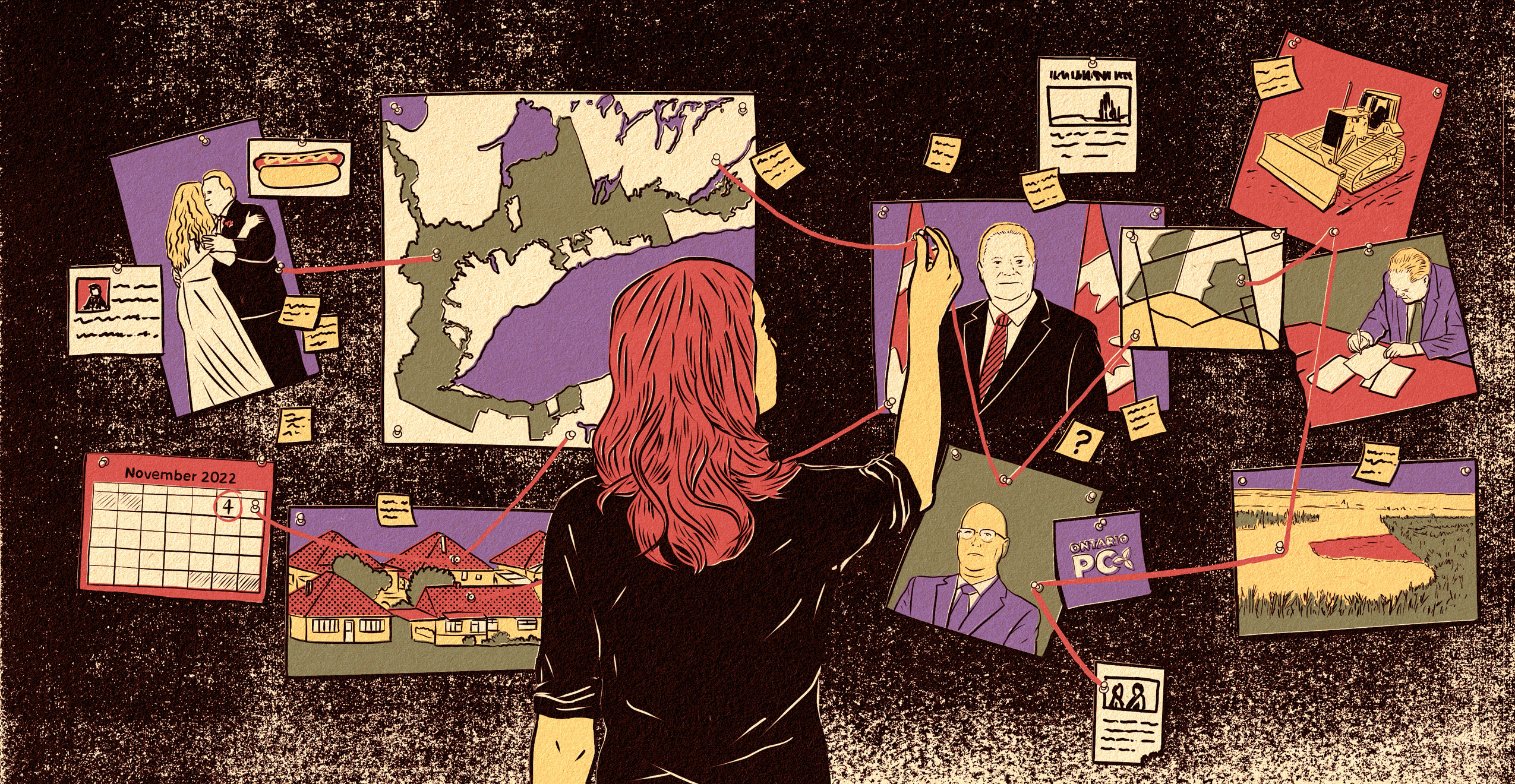
In the wake of reporting by the Toronto Star showing some of the land that was removed from the Greenbelt last year has been listed for sale, Ford warned developers on Aug. 29 that he’s willing to return land to the Greenbelt if landowners don’t abide by the government’s conditions for building on it.
“This behaviour goes against everything that our government is doing to bring home ownership into reach for more people,” Ford said in a statement, adding that the landowner had not disclosed its intention to sell the land in ongoing talks with a provincial development facilitator.
“In response, our government is exploring every option available to us, including immediately starting the process to put these sites back into the Greenbelt.”
The sites in question are two addresses totalling about 100 acres, located east of Toronto in the suburban town of Ajax. A representative of the landowner told the Star the land was listed for sale to find a “joint-venture partner with the experience necessary to help us develop the property,” and that there was never an intention to sell the land outright. An ad for the listing marketed it as “future development land for sale.”
Ford has previously said he’ll return formerly protected land to the Greenbelt if developers don’t show “real progress” on their plans for the properties by the end of 2023, and get shovels in the ground by 2025. He repeated that message in his statement Aug. 29: “To the other property owners, you’re on notice,” Ford said.
Days earlier, the Star also reported that a second developer had sold a different piece of former Greenbelt land at a huge profit.
Flato Upper Markham Village Inc., a company run by Shakir Rehmatullah — a developer who attended Ford’s daughter’s wedding last year — originally bought the 102-acre lot in Markham, northeast of Toronto, for $15 million in 2017. A slice of it was part of the Greenbelt until the province removed protections from it last year. In April, the company sold a portion of the property for $62 million, according to sale records obtained by the Star. Flato told the Star it retains ownership of the land and will be involved in developing it, but did not provide details.

In an Aug. 22 statement, the premier’s office “accepted” Amato’s resignation “effective immediately.” Amato is a longtime Progressive Conservative who has held senior positions in the Ford government. He has been Clark’s chief of staff since July 2022. Before that, he worked closely with Minister of Transportation Caroline Mulroney as her director of stakeholder relations, and before that, when she was attorney general, as her director of operations.
In his resignation letter obtained by the Globe and Mail, Amato said he has been “unfairly depicted” in recent public statements.
“I am confident that I have acted appropriately, and that a fair and complete investigation would reach the same conclusion,” Amato’s resignation letter said. “However, these public statements have made it impossible, as a practical matter, for me to continue in my present role.”
“I do not wish to be a distraction from the Government of Ontario’s important work in getting More Homes Built Faster. I hereby resign effective immediately from my role as Chief of Staff to Minister Clark. I would like to thank Minister Clark and Premier Ford for the opportunity to serve the people of Ontario in this role, for their confidence that they have shown in me.”
Up until his resignation, Ford and Clark had stood behind Amato. Responding to the auditor general’s report, Clark told reporters the premier had “confidence … in me and my staff.”
“I appreciate the support that the premier has given to us,” Clark said when asked on Aug. 9 if Amato was remaining in his position.
On Aug. 11, when asked if Amato was being set up as the “fall guy” for the fallout of the Greenbelt policy, Ford said he would wait for the integrity commissioner’s report before making any decision. Later, the Toronto Star reported sources had said Ford personally intervened to save Amato’s job, although some in the premier’s inner circle had pushed to let the staffer go.
Amato and the premier’s office did not answer questions from The Narwhal about the resignation.
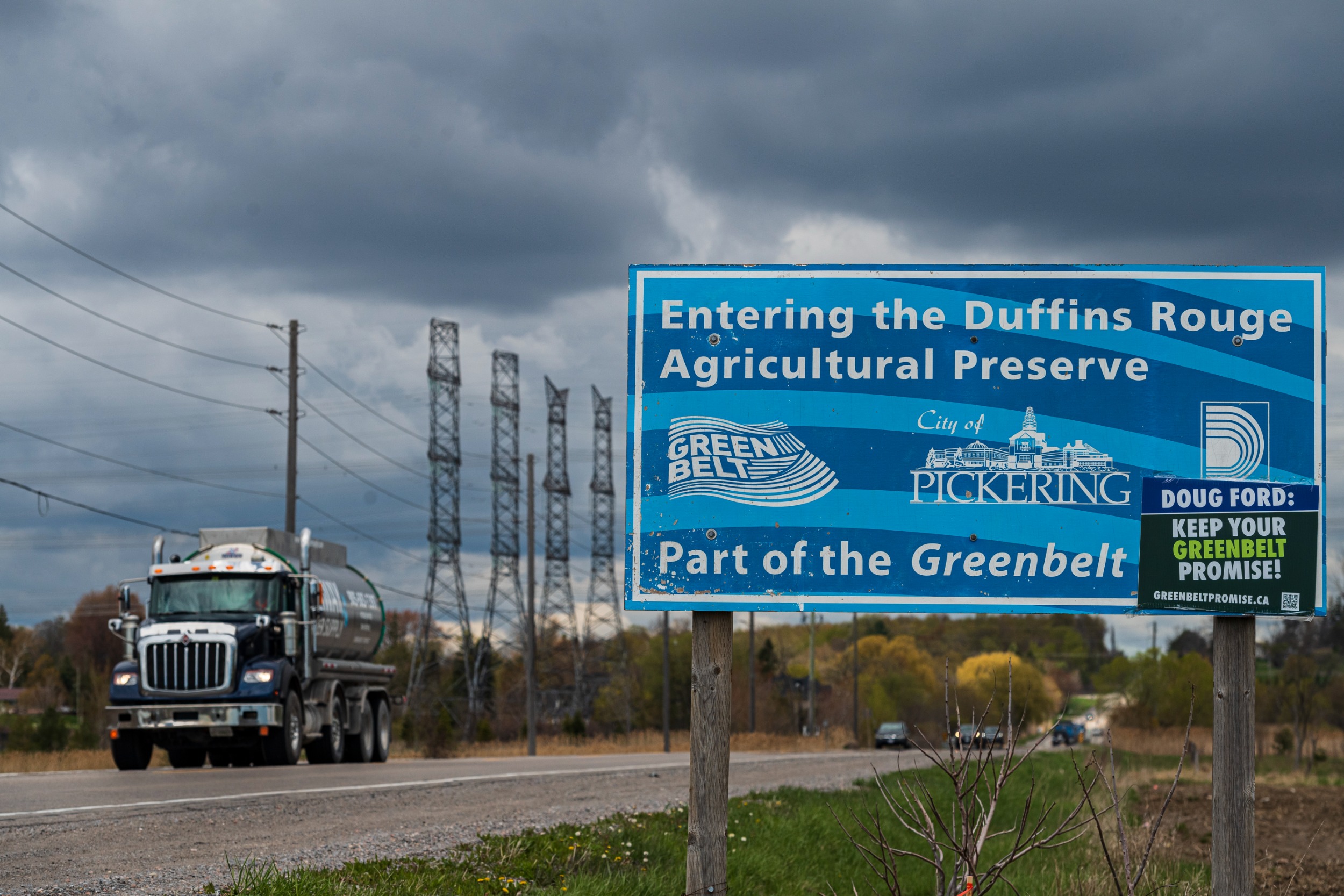
In the wake of Amato’s resignation, opposition leaders had been calling for further investigations and accountability — and reiterating calls for Clark to resign.
The NDP in particular pointed to a section of the auditor general’s report that noted a second political staff member in Clark’s office was involved in selecting Greenbelt sites in Hamilton and Grimsby that were eventually opened to development. This person was working on the ministry’s consultations and review of municipal land use policies, called official plans: in November, on the same day the Greenbelt decision was released, the City of Hamilton was ordered to expand beyond its urban boundaries into surrounding farmland and protected greenspace, despite the municipality’s desire not to sprawl outward.
NDP Leader Marit Stiles said in light of the second staffer’s involvement, Amato’s departure was the “bare minimum” and “doesn’t even begin to scratch the surface of accountability.” Stiles has said the situation “smells of corruption.”
The NDP has also made a formal request for the government to recall the legislature to deal with the fallout from the Greenbelt report. The legislature usually isn’t in session during the summer, and is not expected to resume until late September. The Progressive Conservatives haven’t agreed to the ask.
Clark previously said he wouldn’t step down. Asked by the Globe and Mail if the premier would be asking for Clark’s resignation, a spokesperson said “No.”
The premier’s office gave Global News the same two-letter response when asked if a public inquiry would be considered, a move requested by Ontario Green Party Leader Mike Schreiner. “People want transparency, they want accountability and they want to know the truth, and the only way that we’re going to get that level of transparency and accountability is through an independent public inquiry,” he said at an Aug. 24 press conference.
The Ontario Liberals, too, are asking for a deeper examination of what happened. “Mr. Amato’s resignation does not resolve this situation … Premier Ford must open the books to a full investigation,” interim Liberal Party Leader John Fraser said in a statement.
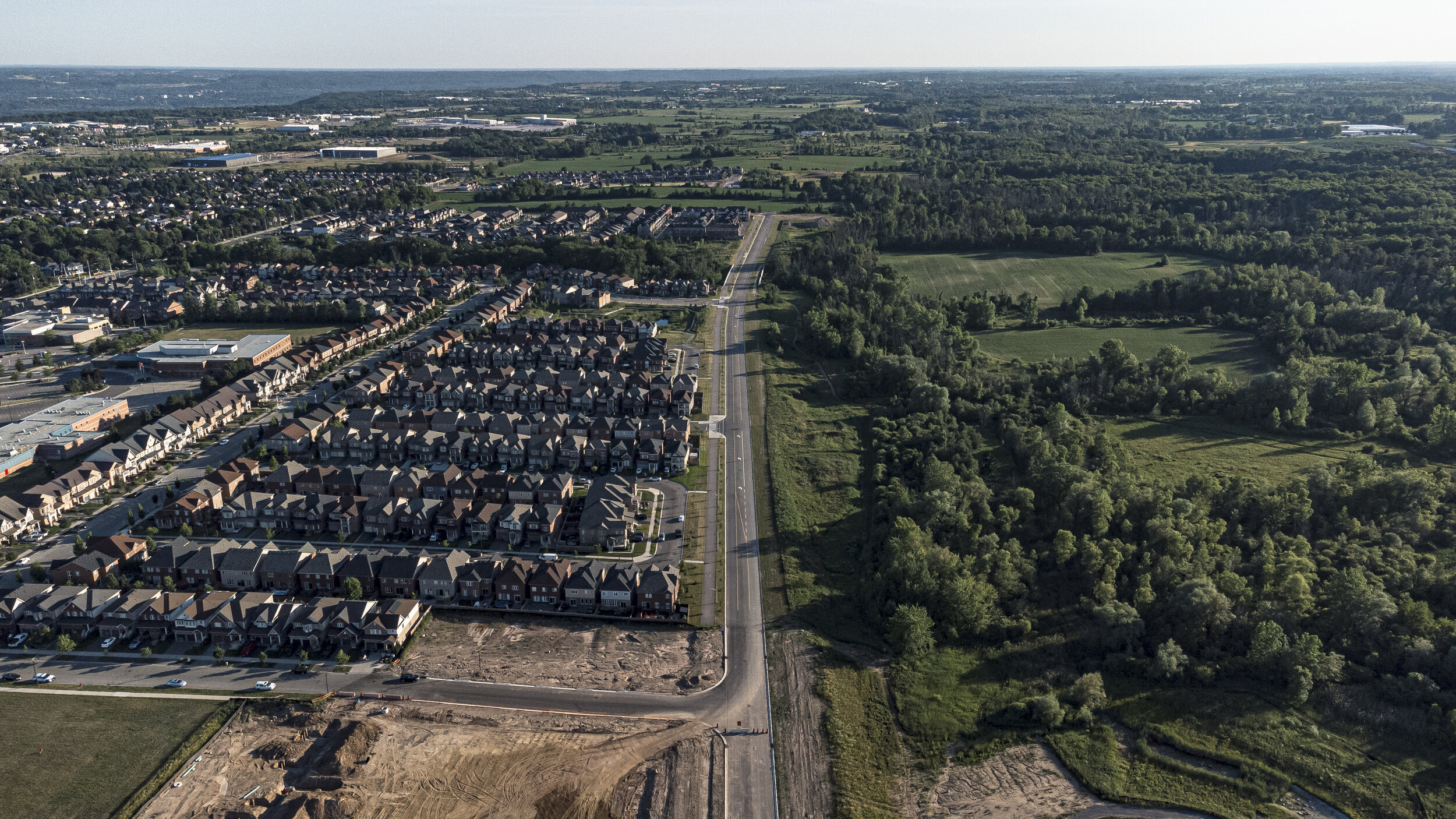
On Aug. 17, the leadership council of the Chiefs of Ontario, an organization that represents 133 First Nations, came together to demand “the immediate resignation” of both Minister Clark and Amato, his top advisor.
The Chiefs have been vocal in their opposition to the Ford government’s recent land-use policy changes. Last December, they asked the government to repeal Bill 23. The Chiefs said the bill was unconstitutional as it did not involve any consultation with First Nations.
After the auditor general’s report, the Chiefs repeated this call, and asked for “an immediate reinstatement of environmental protections for the Greenbelt.” They asked for more time to properly consult on all land-use policy changes and demanded that the government provide “a written commitment to seek consent from First Nations before any further changes are made to the Greenbelt.
The Chiefs also said they would “cease any current relationships with Minister Clark until an adequate resolution” to these issues was reached.
The First Nations leaders said they too would be asking the Ontario Provincial Police and integrity commission to formally investigate the government’s actions, as “the processes in which these events took place were not transparent or fully informed, nor did they consider the need for consultation with First Nations before taking actions that directly affect First Nations inherent, treaty, and constitutionally protected rights.”
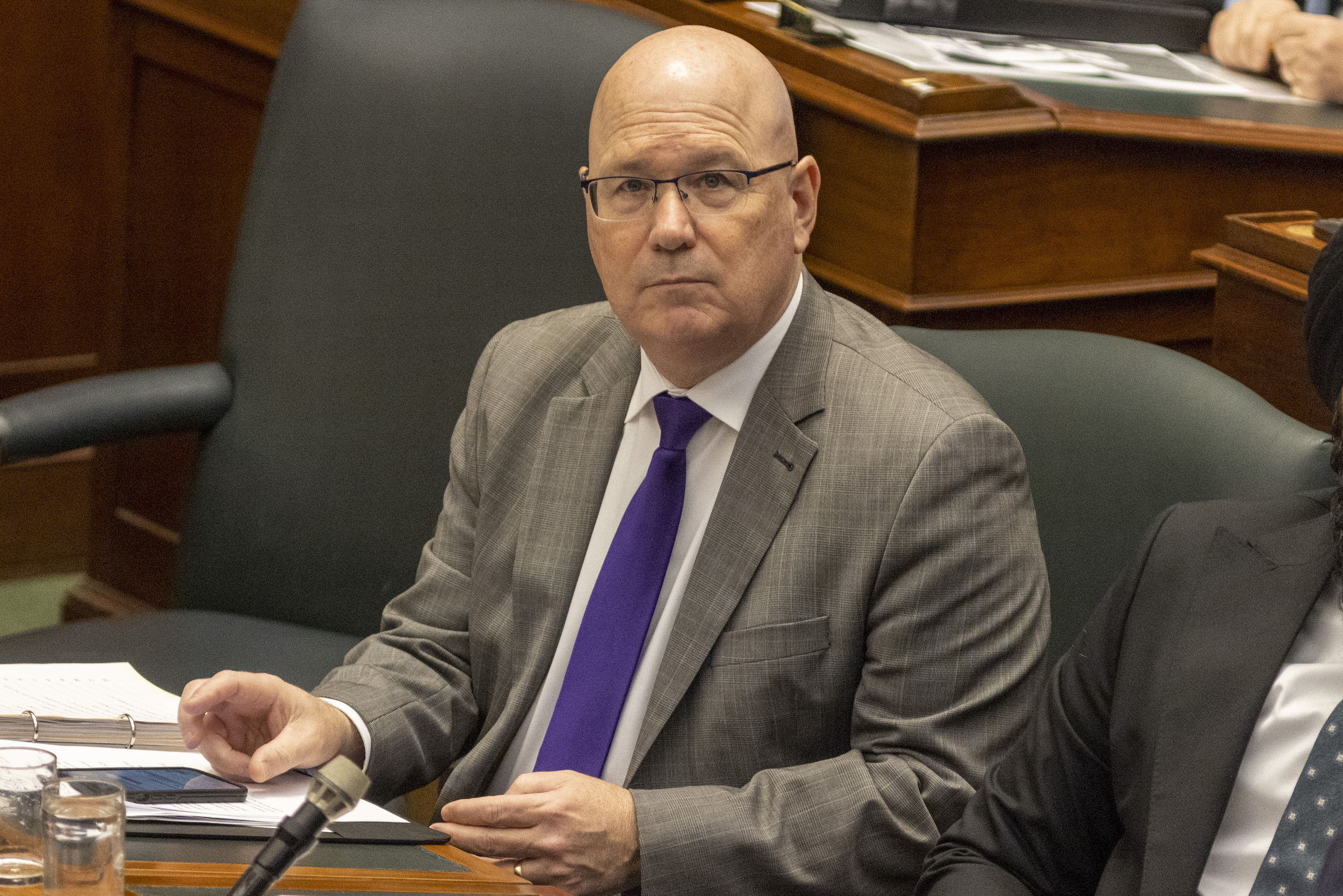
Responding to Lysyk’s report on the day it was released, Ford said he takes “full responsibility” for the issues documented in the report and did not contest what the audit found. “The buck stops with me,” he said.
The very next day, however, Ford flip-flopped and began doubling down.
“No one had preferential treatment,” Ford said, despite the fact the auditor general found the opposite. The governing Progressive Conservatives also bought a flood of ads online and on the radio to tout their housing plans, going on the offensive as Ford insisted his only aim was “making sure that we build homes as quickly as possible.”
Even as Ford contested Lysyk’s findings, the premier’s office began moving to respond to recommendations from her report. In a memo to ministers’ chiefs of staff and deputy ministers, which was shared with journalists, the premier’s office reminded public servants to follow ethics rules, specifically those that govern disclosing potential conflicts of interest. It also said the government is working on a comprehensive response to Lysyk’s findings and creating a working group to implement them.
Ford has refused to accept the report’s key recommendation: that he revisit the decision to open parcels of Greenbelt land. That means the developers who benefitted will be allowed to go ahead with plans to build.
“Doug Ford is killing democracy, so developers can make 8.3 Billion” #HandsOfftheGreenbelt pic.twitter.com/EZJaFIYiHv
— GASP4Change (@Gasp4Change) August 13, 2023
In the days following the release of Lysyk’s report, protests erupted in two cities just outside of Toronto.
The largest so far was east of Toronto in Pickering on Aug. 13, where the largest chunk of former Greenbelt land that saw protections removed — the Duffins Rouge Agricultural Preserve — is located. According to the Toronto Star, hundreds of people rallied outside the office of Pickering MPP and Finance Minister Peter Bethlenfalvy, waving signs with slogans including “save our Greenbelt” and “hands off the Greenbelt” as people driving by honked their horns in support.
Another hundred people protested the next evening in Orillia, north of Toronto, outside the office of Progressive Conservative MPP and Minister of Colleges and Universities Jill Dunlop.
“There were 30 MPPs across Ontario who signed off on this deal,” Margaret Prophet, the executive director of the Simcoe County Greenbelt coalition, told local publication Orillia Matters at the protest. “One of them was Jill Dunlop.”
More rallies are being planned for other cities in the Greater Toronto and Hamilton Area for August and September, and a number of online petitions calling for Ford’s resignation, including one with over 20,000 signatures and one run by the NDP.
One of Lysyk’s recommendations was that the premier’s office ask Ontario’s integrity commissioner, J. David Wake, to investigate whether Amato may have violated ethics rules. The government followed through with that request, and Wake’s office confirmed it was considering whether to launch a probe.
Wake’s office is also working on two other investigations involving ties between the Ford government and developers. One is aimed at whether Clark himself breached ethics rules. Another is examining whether Ford used his influence to improperly further the interests of his friends, stemming from the revelation that prominent developers who have benefitted from government decisions — including the decision to open Greenbelt lands — attended a pre-wedding stag-and-doe party for the premier’s daughter. The latter investigation is on hold, pending the outcome of the first.
On Aug. 16, the NDP asked the integrity commissioner to expand his Greenbelt investigation to include the premier’s personal cellphone, which he is known to use for professional duties. In her report, Lysyk highlighted the use of personal devices and email addresses — as well as the deletion of relevant emails — by government staff as one of many worrying issues with how the process of choosing which Greenbelt parcels to open unfolded.
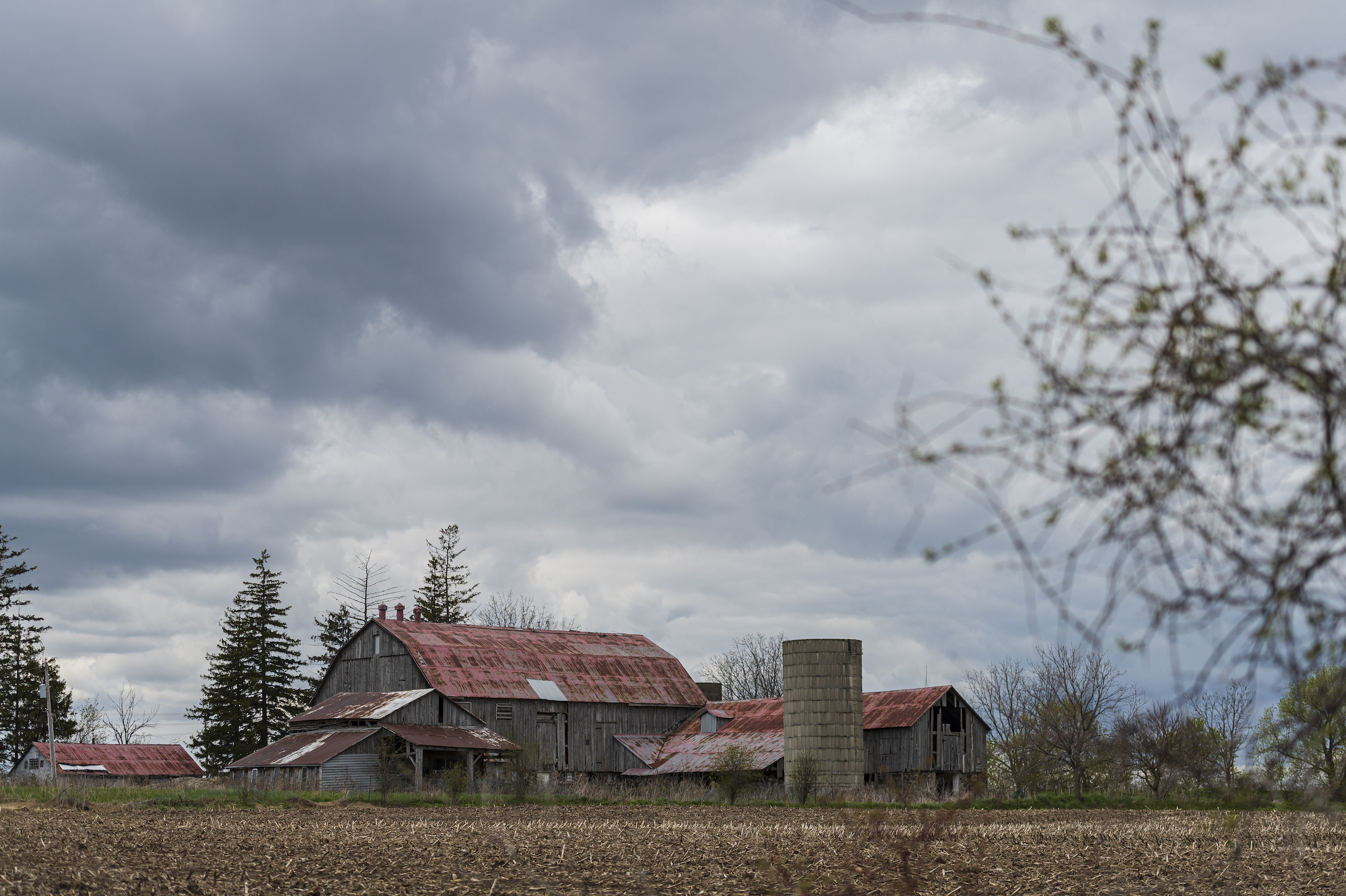
On Aug. 10, the Ontario branch of the National Farmers Union called on the province to return land to the Greenbelt, saying it was “unjustly and irresponsibly stolen.”
The Ontario local, which represents thousands of family farmers in the province, pointed to Lysyk’s finding that the government didn’t consider environmental and agricultural risks when it picked land to remove from the protected area.
The government’s promises to do better moving forward are “cold comfort for farmers and the general public who were depending on their government to uphold farmland and natural heritage protections,” the union said in a statement.
Though the provincial government writes the rules for how land in the province can be used, it’s cities that are tasked with actually approving development and making it work. And in the wake of Lysyk’s report, municipalities — including some that oversee lands removed from the Greenbelt — joined farmers, environmentalists and opposition politicians in asking the government to reverse its Greenbelt decision.
Hamilton Mayor Andrea Horwath said the decision to remove protections from the Greenbelt, including a few parcels in her city, is “an unnecessary, ineffective and misguided measure that will not contribute to meeting Hamilton’s housing needs.”
Pickering Mayor Kevin Ashe, who has been supportive of the move to take land in his city out of the Greenbelt, also raised red flags. He said Lysyk’s report raised a “number of concerns,” and he doesn’t want Pickering to “subsidize private interests.”
Other Greater Toronto Area mayors, like those in Whitby and Newmarket, have also condemned the province’s move.
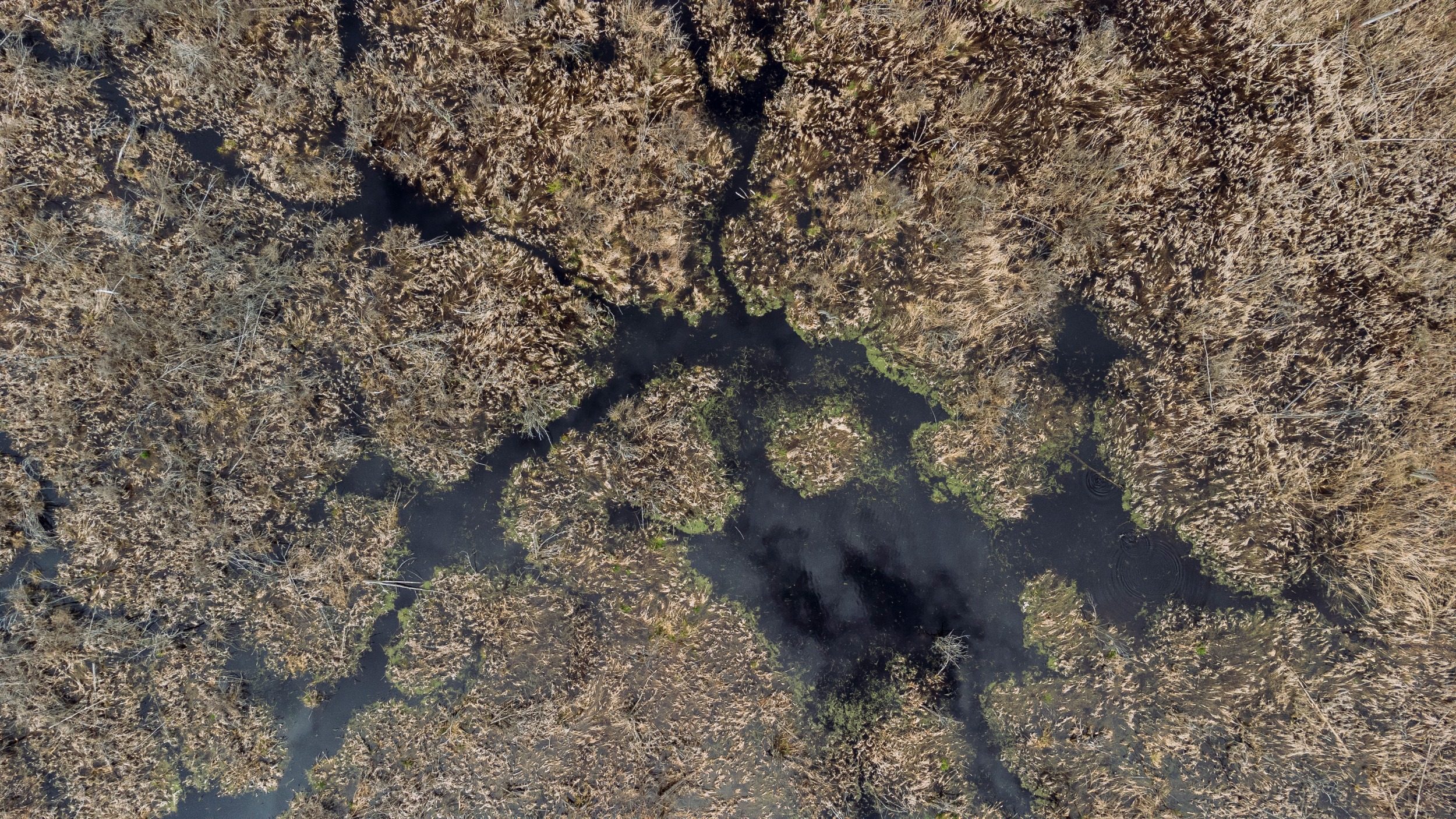
While not directly related to the auditor general’s report, an announcement by the federal Impact Assessment Agency this week presents another potential hurdle to developing the Duffins Rouge Agricultural Preserve. Last spring, federal Environment Minister Steven Guilbeault asked the agency to study how development there could affect Rouge National Urban Park, including potential effects on species at risk: Parks Canada has said building on the preserve could interfere with the last intact corridor used by wildlife to travel between Lake Ontario and the Oak Ridges Moraine.
Now the terms of the study have been set. The agency will consider the effects of past, present and potential future development on not just on the agricultural preserve and the national park, but other federal lands in the area. Along with species at risk, the agency will consider potential effects on migratory birds, forests, wetlands and farms.
The terms outlined by the agency include consultation with multiple First Nations and Indigenous groups as well as the public at large: in her report, Lysyk found Ontario had failed to meet its duty to consult First Nations, or to adequately consider public objection to Greenbelt development.
The agency’s study isn’t as serious a federal intervention as a full assessment. But Guilbeault has said repeatedly he would not hesitate to use the tools available to him to stop any development that may have “a profound impact on species at risk in Canada.”
— With files from Denise Balkissoon
Updated on Aug. 22, 2023 at 5:57 p.m. ET: This article was updated to add news of Ryan Amato’s resignation.
Updated on Aug. 22, 2023 at 6:45 p.m. ET: This article was updated to include comments from the Chiefs of Ontario.
Updated on Aug. 23, 2023 at 9:09 a.m. ET: This article was updated to add new comments from the RCMP and the OPP
Updated on Aug. 23, 2023 at 10:59 a.m. ET: This article was updated to add new comments from the RCMP.
Updated on Aug. 25, 2023 at 2:40 p.m ET: This story was updated to include a section about the RCMP, new reaction from opposition politicians, a statement from the Office of the Information and Privacy Commissioner and details from the Association of Municipalities of Ontario conference. It was also updated to correct a subheadline that listed an incorrect city name.
Updated on Aug. 29, 2023 at 3:43 p.m ET: This story was updated to include Premier Ford’s statements about former Greenbelt landed being listed for sale.
Updated on Sept. 4, 2023 at 12:55 p.m. ET: This story was updated to include new statements by Steve Clark, announcing his resignation and a new statement by Premier Ford.
Updated on Sept. 4, 2023 at 6:40 p.m. ET: This story was updated to include new details about changes to Premier Ford’s cabinet.
Updated on Sept. 21, 2023 at 3:08 p.m. ET: This story was updated to include Doug Ford’s announcement that he is reversing changes to the Greenbelt.
Updated on Oct. 10, 2023 at 2:00 p.m. ET: This story was updated to include news that the RCMP have launched an investigation into the Greenbelt changes, and to add updates about lobbying reform and the federal government’s impact study.
Updated on Oct. 20, 2023 at 4:50 p.m. ET: This story was updated with newer information about the information and privacy commissioner and to add news that environmental groups are taking the province to court over Greenbelt documents.
Get the inside scoop on The Narwhal’s environment and climate reporting by signing up for our free newsletter. On a warm September evening nearly 15...
Continue reading
Between a fresh take on engagement and our new life on video, our team is...

The public has a few days left to comment on Doug Ford’s omnibus development bill....

115 billion litres, 70 years to fix, $5.5 billion in lawsuits
